Coming When Called – it’s one of the most basic skills that all dog owner’s value. When our dog has a reliable recall, we can use a cue, like “come” or a whistle, and our dog will stop what they are doing and come to us. When our dog doesn’t have a reliable recall, when we use our cue and they don’t come to us, it can be a very frustrating and dangerous experience. What’s the secret to teaching your dog to come to you every time you call them? It’s really pretty simple, make it easy and fun for your dog from the very beginning!
The most common reason dogs don’t come when called is that they are distracted by something much more compelling. A squirrel, another dog, people, cats, smells – there are many things that distract our dogs.
The second most common reason the reliability of the recall goes down is that some dogs learn that coming when called means that the fun is over. For example, we call them, then we leave the dog park, or we call them, then we put them in their crate and leave for work. These events actually serve to punish coming when called. No wonder they don’t come reliably!
How do you address these issues?
- Make it successful for your dog. To do this begin by working with your dog in a safe place (like a fenced yard or even inside the hours) and make sure there are no major distractions to compete with. The setting should be boring so that you will be the star attraction for your dog. Call them from short distances and make it fun.
- ALWAYS provide something positive when your dog comes to you. This may be a super-yummy treat, a game of tug, or chasing the squeaky toy, but it needs to be something that your dog really enjoys. During the Doggy Business play groups, one of the positive rewards that we can provide is allowing the dogs to return to play. Calling a dog away from a rewarding activity, like playing with another dog, and then allowing them to go back to that activity after getting a yummy treat from you, increases the likelihood that they’ll come to you the next time you call.
When you’re practicing recalls, start with short distances. Once your dog is reliably running to you every time you call them at that distance, add a few feet and try again. Failures (your dog not responding) will only result in a weaker recall, so protect that by not calling them if they are not likely to come. Happy Training!


